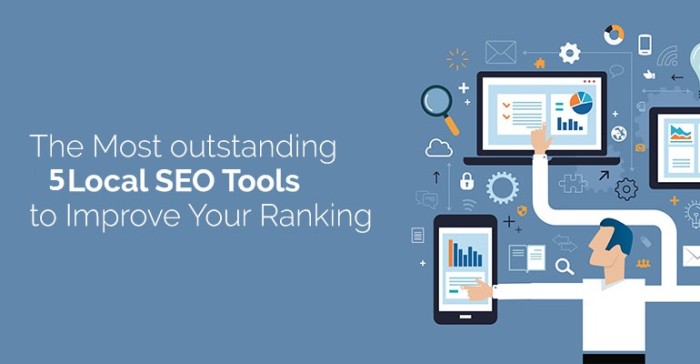
The purpose of Search Engine Optimization (SEO) often ends up glossed over by content managers. Google’s search ranking algorithms have evolved to a point where technical content optimization doesn’t cut it anymore. Studies have shown that 93% of online interactions start with search engines. This means that people actively “search” for keywords, phrases and topics that interest them.
The shift in organic search has made SEO different from what it was only a few years ago. Writers need to pay closer attention to the SEO optimization of their content if they want to reach the right audience. To that end, let’s take a look at several effective SEO targeting tools that can help you find the right readers in no time.
What better way to find relevant keywords and optimize content than by using Google itself? Google has made sure to include a plethora of useful tools in their cloud arsenal for content managers. AdWords represents the most comprehensive and up-to-date SEO optimization tool on the market. This point is further proven by the fact that Google owns 71% of search market shares across the entire internet.
It can provide content creators with keyword search and planning options as well as site analytics. Following the data provided by AdWords will essentially transform your SEO targeting strategy. You will have much more insight into the wants and needs of your audience than before.
Best of all, you will be able to monitor the performance of your content and ensure that the keywords you are using are popular at that moment. Google AdWords is free to use but requires a free account creation which is a small price to pay for such an intuitive and comprehensive tool.
Keeping an eye on your own site’s SEO and performance is important. You should always have a tool at hand to perform analysis for further improvement. BuzzSumo is an SEO tool capable of analyzing your site’s content, SEO optimization and performance across all pages.
You can also use BuzzSumo to research relevant keywords that might be trending in your industry or niche. What separates BuzzSumo from other SEO targeting tools is its ability to analyze any website you come across. This makes it invaluable for competition research and general industry trends.
All you need to do is enter a hyperlink or a keyword and wait for BuzzSumo to do its thing. You will be presented with a complete report of recent trends, changes and future SEO predictions. Using these reports for SEO targeting is essential if you want to stay ahead of the curve and anticipate what your audience will want to see next.
Internal website networks are a popular occurrence in today’s age. Many sites fall under general categories that can easily be segmented and analyzed. Quantcast is a platform that allows for such ongoing website analysis. Any website that is present in Quantcast’s database can be monitored and analyzed in a number of ways.
You can follow audience demographic shifts based on the content published over time. This can help you determine keyword popularity and implement the right words into your content. Using Quantcast on a daily basis will let you perform SEO targeting much more precisely since the data provided by the platform is very detailed.
You will be able to effectively bring more relevant readers to your website while you avoid the ones that wouldn’t like your content to begin with. New websites are added to Quantcast’s database frequently. The tool is capable of giving rudimentary analysis data for any website that might not be present in its database as of yet. While this data might not be as comprehensive, it can still be useful for baseline SEO targeting and keyword optimization.
It’s always important to know what your competition is up to. Targeting specific groups of readers is also much easier with a market-specific database of information. This can prove beneficial in detecting new industry trends early and adapting your content to what is to come. Alexa is a market-specific SEO research tool that allows you to extrapolate data based on different industries.
For example, a software marketing agency might be interested in what other software marketing agencies are up to. Alexa can provide accurate and actionable data for you to implement in your SEO targeting. It can also conduct a site audit which means that you will always be aware of how your content performs.
One downside to Alexa is that it only works with websites you are aware of. This means that you will have to manually collect and enter the database of websites for analysis and monitoring. Once that is done, you will have full access to specific SEO optimization steps needed to update your own content.
Learning how to effectively target different demographics always comes down to competition research. SpyFu is a tool designed for the sole purpose of analyzing specific websites and giving you actionable data to act on. All you have to do is insert the hyperlinks of websites you want to analyze and let SpyFu do its thing.
You will be presented with weekly and monthly reports of SEO performance and traffic based on individual pages. It’s also easy to monitor local and global performance of content present on the website even if you are not the administrator behind it.
This makes SpyFu a remarkable tool for analyzing popular competition with secretive SEO methods. Combining SpyFu with other keyword research and optimization tools can bring about extraordinary SEO results for your content’s ranking.
Continuous SEO (Conclusion)
It’s worth noting that SEO should always be up-to-date when ranking is concerned. Websites that want to remain relevant and visible on search engines should follow industry trends and adjust old content accordingly. Choose several SEO targeting tools and learn to rely on their data on a daily basis. This will let optimize your content on an ongoing basis and establish industry authority as a highly-ranked website.
